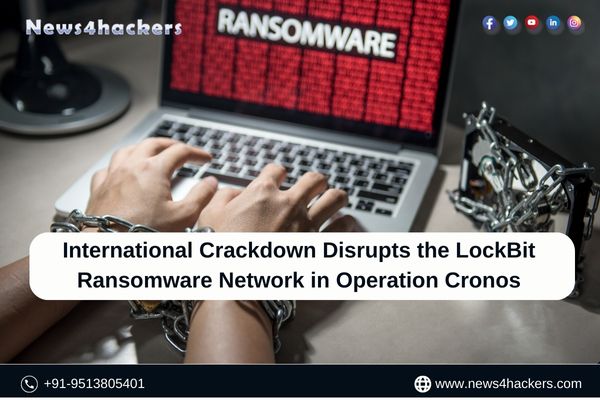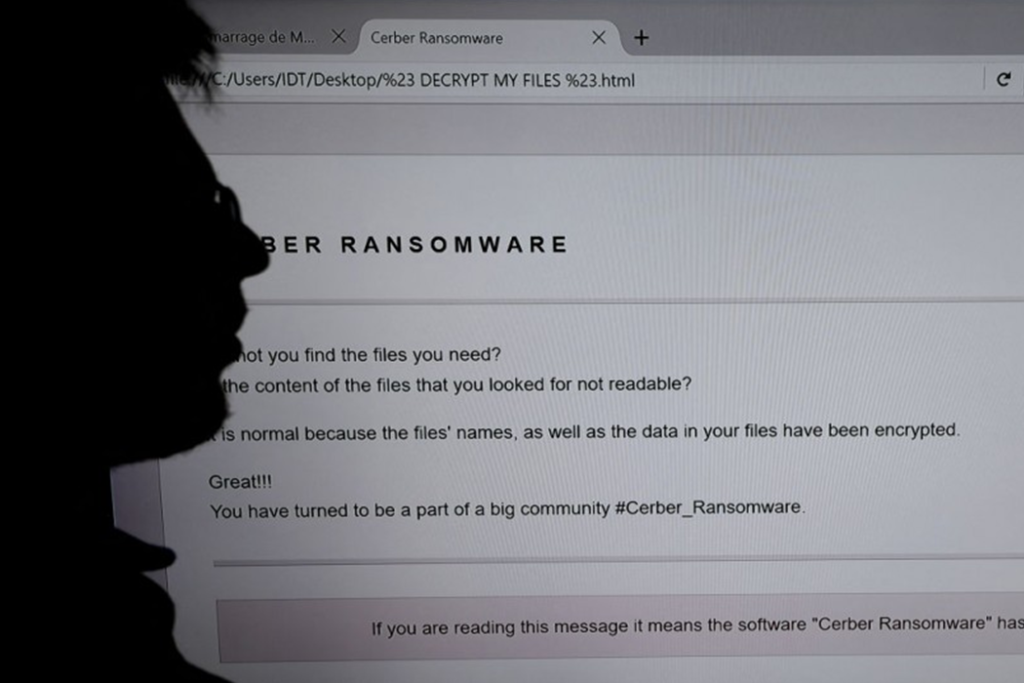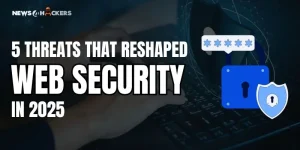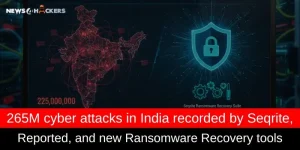International Crackdown Disrupts the LockBit Ransomware Network in Operation Cronos

International Crackdown Disrupts the LockBit Ransomware Network in Operation Cronos
Victory worldwide against the LockBit ransomware! Operation Cronos disrupts cyber threats on a global scale by dismantling criminal networks.

A revolutionary endeavor to address cybercrime was accomplished when law enforcement agencies hailing from ten nations effectively dismantled the malicious infrastructure associated with the infamous LockBit ransomware organization.
The activities conducted as a component of ‘Operation Cronos,’ which was coordinated by Europol and Eurojust and directed by the UK National Crime Agency, significantly undermined the capabilities and reputation of LockBit.
Key Developments:
The criminal operation conducted by LockBit, which was global in scope, compromised the company’s primary platform and critical infrastructure. As a consequence, 34 servers from various countries were taken offline, including Australia, the United States, the Netherlands, Finland, France, and Switzerland. Two individuals connected with LockBit have been arrested in Poland and Ukraine in response to requests from the judiciary of France.

The freezing of more than two hundred cryptocurrency accounts linked to the LockBit criminal organization demonstrates a determination to impede the economic motivations that propel ransomware attacks. LockBit’s technical infrastructure and the dark web breach site, which unlawfully stored compromised data from victims, have been taken over by the UK National Crime Agency.
The LockBit ransomware, widely recognized as the most destructive and prolific in the history of the world, surfaced in late 2019 and swiftly ascended to the position of the most widely deployed variant worldwide by 2022.
Implementing a ‘ransomware-as-a-service’ framework, the organization maintains an international presence, employing hundreds of affiliates to execute ransomware campaigns. The criminal organization employed a combination of three extortion strategies: Distributed Denial-of-Service (DDoS) attacks, data encryption, and disclosure threats.

The coordination of the international endeavor was a pivotal responsibility of Europol. The organization facilitated technical sprints, operational meetings, and analytical, crypto-tracing, and forensic assistance. Through Europol’s secure information channel, more than a thousand operational messages were exchanged, making this one of the organization’s most active investigations.
The Japanese Police, the National Crime Agency, and the FBI have contributed their technical expertise to the development of decryption tools that can be used to decrypt files encrypted by LockBit. The ‘No More Ransom’ portal provides these tools at no cost, to the benefit of more than six million victims worldwide.
Law Enforcement Demands Continued Surveillance:
Law enforcement agencies place significant emphasis on the ongoing involvement of victims and the private sector in promptly reporting cybercrime. The act of reporting cybercrime expedites the evaluation of novel methodologies, thereby assisting in the mitigation of potential harm. Europol provides a list of reporting websites in EU Member States and cybersecurity advice to avert infections with ransomware.

Operation Cronos Taskforce
A persistent global endeavor, Operation Cronos aims to disrupt and apprehend the LockBit ransomware. Authorities from France, Germany, the Netherlands, Sweden, Australia, Canada, Japan, the United Kingdom, the United States, and Switzerland are members of the task force. The operation’s triumph was facilitated through the assistance of other nations, such as Finland, Poland, New Zealand, and Ukraine.

About The Author:
Yogesh Naager is a content marketer who specializes in the cybersecurity and B2B space. Besides writing for the News4Hackers blog, he’s also written for brands including CollegeDunia, Utsav Fashion, and NASSCOM. Naager entered the field of content in an unusual way. He began his career as an insurance sales executive, where he developed an interest in simplifying difficult concepts. He also combines this interest with a love of narrative, which makes him a good writer in the cybersecurity field. In the bottom line, he frequently writes for Craw Security.
READ MORE ARTILE HERE





